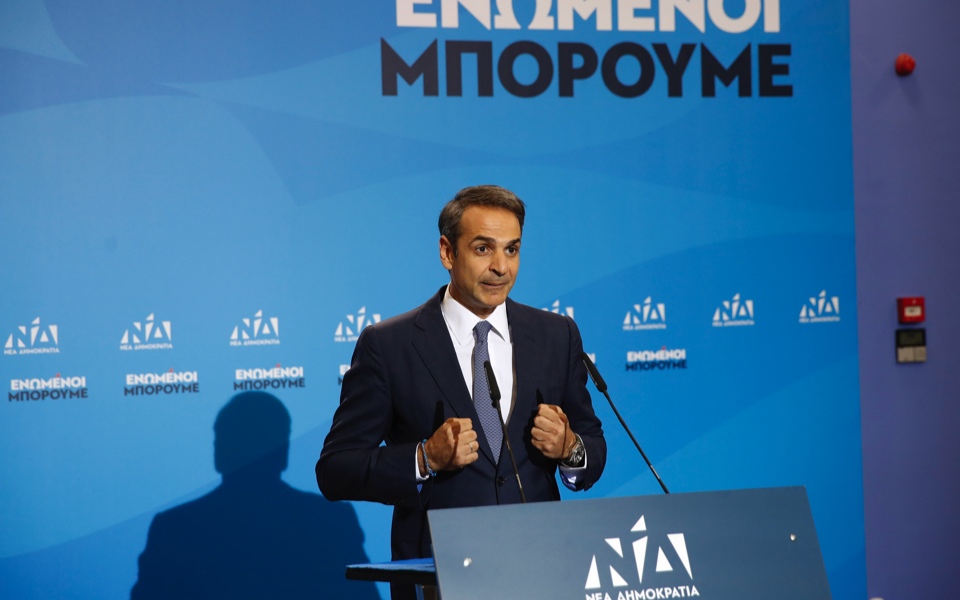A strong government and a strong opposition

As the results poured in after the polls closed Sunday night, it quickly became evident that Kyriakos Mitsotakis and his center-right New Democracy party would have a comfortable majority in the new Parliament. Also, that while Alexis Tsipras and his SYRIZA movement had lost power they maintained a strong presence. With a strong one-party government and a strong opposition, all options are open: if there is even a minimum of cooperation between the two major parties, we can hope for political stability that will allow crucial reforms to go ahead; if ND balks at the challenges of reforming the country, or if SYRIZA puts its weight behind obstructing change, then Greece will remain trapped in the dysfunctional political and economic system that caused and maintained the crisis.
After 10 years of crisis, after the greatest bailout of a sovereign nation and the biggest debt reduction ever, Greece still faces threats on many fronts. It needs to encourage foreign direct investment to get the economy moving, it must set its banks on a stable footing to be able to fund development and it must reach an agreement with creditors to loosen the noose of large primary surpluses. Above all, it has to provide an exhausted population with the hope that the country has seen the worst of the crisis and that things will get better. Only this will encourage a return of capital to the banks, the foundation of new businesses and the repatriation of hundreds of thousands of young people who left to seek their fortune abroad. With public debt at 180 percent of gross domestic product and the country under foreign supervision until 2059, getting the economy moving and inspiring hope will take years of hard work.
But change will also need to come quickly, if Mr Mitsotakis is to exploit the window of opportunity that his convincing victory provides. His wish to encourage investments and to restore law and order with a crackdown on anti-establishment groups in Athens and in universities will bring strong reactions and will demand strong nerves and public support.
This is where the role that SYRIZA can play as the main opposition party will be crucial. Mr Tsipras can either decide to push his party toward the center-left, where the once mighty PASOK party (now KINAL) has left a void, or he can continue to invest in exploiting popular anger at change wrought by the crisis. His election campaign, in which he provided handouts to voters while attacking Mr Mitsotakis and his party continually, claiming that they were out to undo all the good that SYRIZA had done, suggests two things: Mr Tsipras might continue to in this same vein, interpreting his party’s strong showing as a sign that the old political tricks still work, or he could see SYRIZA’s second place as proof that these tactics are not good enough. His leadership of the party will most probably not be challenged but there will be a period of introspection as SYRIZA works out its identity and tactics. It is customary in Greek politics for opposition parties to do all in their power to obstruct governments’ plans and it is highly likely that SYRIZA will do the same. However, if Mr Tsipras chooses to follow a responsible policy in opposition, knowing that his party can contribute to much-needed stability, this could provide Greece with the opportunity to enter a new era. It would also establish his party as a lasting feature of the country’s politics, no longer a protest movement that surged from 4 percent of the vote in 2009 to power in 2015.
A greater challenge, though, awaits the new prime minister. Kyriakos Mitsotakis has made a habit of defying expectations and will have to do the same now, overcoming chronic problems in Greece’s public administration, politics and the economy. The son of a prime minister, Constantinos Mitsotakis (from 1990-1993), he was an outsider when he ran for election as party leader in 2016, managing to win with the support of people who were not party members or part of the old guard. More liberal than his own party, Mr Mitsotakis consolidated his position through New Democracy’s convincing win in May’s elections for the European Parliament, after SYRIZA had targeted him personally throughout the campaign. Last year’s Prespes Agreement, in which Greece recognized its northern neighbor as North Macedonia, caused an upsurge in nationalist sentiment across much of the country, including many New Democracy cadres, but Mr Mitsotakis was able to keep the party together. With his credibility now strengthened, he is expected to form a government that is closer to the center than to the nationalist and statist part of New Democracy.
Mr Mitsotakis has a heavy responsibility to show that his party, which was established with the restoration of democracy in 1974, is in a position to govern differently – with politics no longer based mainly on heavy spending in exchange for votes, with political, business and media interests locked in a self-serving system. He has already shown his will to do this, moving the party headquarters to a cheaper building in an industrial part of Athens and selecting new cadres through a recruitment drive. Mr Mitsotakis knows that he has very little time to bring about change in politics, the economy and society, while also meeting challenges on the diplomatic front. His victory statement last night was notable for its focus on hard work and his call for unity. “We are too few to be divided,” he declared.
If he can lead Greece in a spirit of unity, if Mr Tsipras can contribute to this, then the greatest of structural changes that Greece needs will be that much closer.





